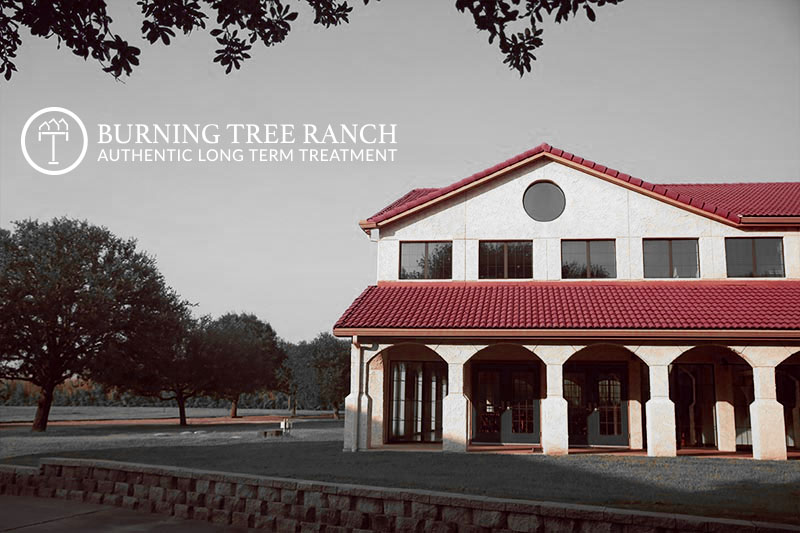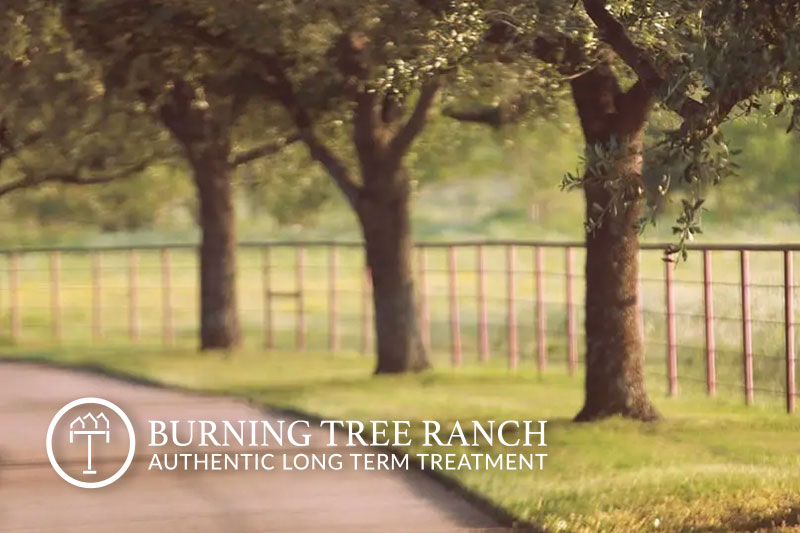As a counselor, I work closely with the families who engage Burning Tree Ranch for our authentic long-term treatment program. The recovery journey is just that—a journey. The path may be short or long, and in the case of chronic relapse, it may be walked many times.
If you or a loved one are somewhere on the path to recovery, you’ve probably wondered, ‘How long is it going to take – to reach sobriety?’ How do you know when you’re there? In my experience, the answer, like the journey itself, is not straightforward.

Factors Influencing the Length of Addiction Recovery
Several key elements play a role in determining the duration of an individual’s recovery journey. The severity and duration of the addiction, as well as the type of substance or addictive behavior involved, can significantly impact the time required to achieve and maintain sobriety.
Co-occurring mental health disorders, such as depression, anxiety, and various personality disorders, can also complicate the recovery process and necessitate additional time and specialized treatment. An individual’s support system, environment, and personal motivation are also crucial factors that can influence the length of recovery.
The Five Stages of Addiction Recovery
Recovery is a gradual process that typically involves several distinct stages. Each stage plays a vital role in the overall recovery timeline, and the duration of each stage can vary widely from person to person.
Stage #1: Precontemplation
The precontemplation stage is characterized by individuals who are not yet aware of or willing to acknowledge their addiction problem. They may be in denial or feel their substance use is under control.
Stage #2: Contemplation
In the contemplation stage, individuals begin to recognize the negative consequences of their addiction and start considering the possibility of change. They may feel ambivalent about seeking help.
Stage #3: Preparation
During the preparation stage, individuals commit to making a change and start planning for treatment. They may begin researching options, talking to loved ones, or setting goals for recovery.
Stage #4: Action
The action stage involves actively engaging in treatment, including detoxification, therapy, and learning new coping skills. During this stage, individuals work to establish a solid foundation for recovery.
Stage #5: Maintenance & Termination
In the maintenance stage, individuals focus on sustaining the progress made in treatment and applying the skills learned to their daily lives. They may continue with ongoing support, such as therapy or support groups, to reinforce their recovery. Finally, the termination stage is reached when individuals feel confident in their ability to maintain sobriety without regular professional support. They have developed a strong support network and have the tools to manage triggers and challenges independently.
Important Note: It’s important to note that these stages are not always linear, and individuals may move back and forth between stages throughout their recovery journey. Relapse, while not inevitable, can be a common part of the process and does not negate the progress made in previous stages. The goal is to learn from setbacks and continue working toward lasting recovery.

Short-Term vs. Long-Term Residential Treatment Programs
When considering addiction treatment options, one of the most significant decisions is whether to pursue a short-term or long-term residential program.
Short-term programs, typically lasting 30 to 90 days, can provide a solid foundation for recovery and are often the first step for many individuals. However, they may not offer sufficient time to address the underlying issues that contribute to addiction or to develop the necessary coping skills for long-term success.
Long-term residential programs often last 90 days or more, providing a more comprehensive and immersive treatment experience. These programs allow individuals to focus exclusively on their recovery without the distractions of daily life. Long-term programs also allow for a deeper exploration of co-occurring mental health disorders and provide ample time to develop essential life skills and coping mechanisms.
Authentic Long-Term Treatment, like Burning Tree Ranch, lasts 2 years, with the first 8-14 months spent in residence at our inpatient facility in Kaufman, Texas. We treat difficult, advanced stages of addiction that have not been mended in other, shorter-term treatment episodes. Our long-term treatment center is designed to offer the appropriate amount of time to identify, treat, and recover from chronic addiction in a dual-diagnosis setting.

The Case for Long-Term Residential Treatment
For individuals who have struggled with chronic relapse or have developed a form of treatment resistance, long-term residential programs may be the most effective path to lasting recovery. The extended time in treatment allows for more thorough addressing of the complex, interrelated factors that contribute to addiction. Individuals in long-term programs can build a strong foundation for recovery, develop a robust support network, and practice the skills needed to maintain sobriety in real-world situations.
Research has consistently shown that long-term residential treatment is associated with higher success rates, particularly for those with a history of relapse or treatment resistance. The comprehensive nature of these programs, combined with the opportunity for extended practice and support, can significantly improve an individual’s ability to achieve and maintain lasting recovery.
How Mental Health Affects Addiction Recovery
Mental health plays a critical role in the addiction recovery process. Studies have shown that a significant proportion of individuals struggling with addiction also have co-occurring mental health disorders, such as depression, anxiety, or trauma-related conditions. These underlying mental health issues can contribute to impulsive or self-damaging behavior, difficulty regulating emotions, and an increased risk of relapse.
Addressing mental health concerns is a vital component of comprehensive addiction treatment. Integrated treatment approaches provide individuals with the opportunity to work on their addiction and mental health simultaneously. By treating the whole person rather than just the addiction, these programs can help individuals develop the skills and strategies needed to manage their mental health and maintain long-term recovery.

Continuing Care and Aftercare Planning
Recovery does not end when an individual completes a residential treatment program. Ongoing support and continuing care are essential for maintaining the progress made in treatment and navigating the challenges of early recovery. Aftercare planning, typically includes outpatient therapy, support groups, and sober living arrangements, helps individuals transition back into their daily lives while strengthening their recovery skills.
Continuing care options, such as 12-step programs, alumni groups, and individual therapy, provide a vital source of ongoing support and accountability. These resources can help individuals continue to build on the foundation established in treatment, develop new coping strategies, and connect with others who understand the challenges of recovery.
Tailored Aftercare at Burning Tree Ranch
At Burning Tree Ranch, our tailored aftercare program is customized for those who have struggled to maintain sobriety in other, less specialized environments. We provide a focused degree of structure, accountability, and personalized care to help our clients achieve realistic milestones that position sobriety at the forefront of life.
Unlike other aftercare programs, we integrate our entire staff and the whole family into the transition process that our clients undergo. From day one to graduation, we emphasize a teamwork approach that supports the chronic relapser as they create a life of excellence beyond sobriety.

The Lifelong Journey of Recovery
Recovery from addiction is a lifelong journey, not a one-time event. While the initial stages of treatment and early recovery are crucial, it is essential to recognize that recovery continues long after an individual leaves a residential program. Lasting recovery involves a commitment to ongoing growth, self-reflection, and the willingness to seek help when needed.
Throughout the recovery journey, individuals will likely face setbacks, challenges, and moments of doubt. However, with the right support, skills, and mindset, these obstacles can become opportunities for growth and reinforcement of the recovery process. Celebrating milestones, whether one month or a year of sobriety, can provide motivation and encouragement.
Don’t Know Where to Start on the Path to Recovery?
If you or a loved one is struggling with addiction, know that help is available and recovery is possible. The first step is to seek professional guidance and explore treatment options that align with your unique needs and circumstances. For individuals with a history of chronic relapse or treatment resistance, long-term residential programs may offer the most comprehensive and effective path to lasting recovery.
When selecting a treatment program, it is essential to consider factors such as the level of care provided, the expertise of the staff, and the availability of integrated mental health services. Choosing a program that addresses your specific needs and provides a supportive, immersive environment can set the stage for a successful recovery journey.
The road may be long, but the destination – a life of excellence beyond sobriety – is well worth the effort.
Until next time,
Brook




